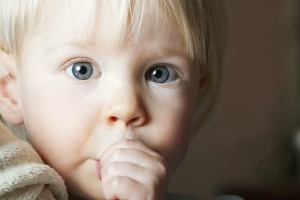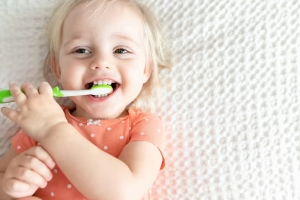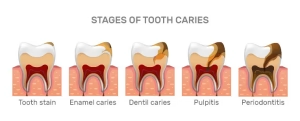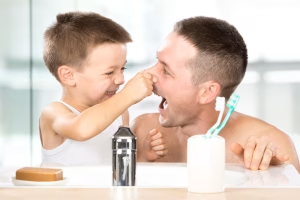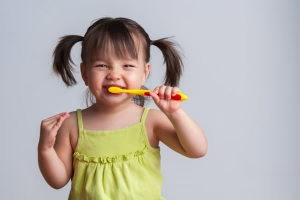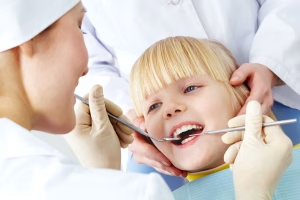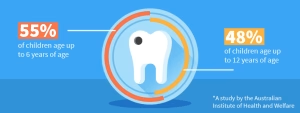Pacifier Teeth: What Is It and How to Treat It?
29 August 2022 | Updated: 14 October 2025

For many parents, a pacifier is an easy and reliable way to comfort their child. These small plastic or silicone nipples, often called soothers, dummies, binkies, or pacis, can help babies self-soothe, fall asleep more easily, and feel secure.
However, prolonged or improper pacifier use can sometimes lead to dental issues as your child’s teeth and jaw develop. This has raised common concerns among parents about the potential effects of pacifiers on their children’s oral health.
In this article, we’ll explain what pacifier teeth look like, how to correct them, and when it’s time to visit a children’s dentistry specialist for professional advice and treatment.
What Are Pacifier Teeth?

Pacifier tooth is a condition that occurs after prolonged sucking on thumbs or after excessively long use of pacifiers. It is a case of malocclusion or teeth misalignment and it means that the natural alignment of the teeth is disrupted.
What Can Cause Them?
Any object that your baby sucks on for a long period of time can negatively affect their teeth, and the level of severity and development of pacifier teeth depends on the duration and intensity of the sucking. The consequences are usually visible between the ages of four and six because at that time permanent teeth are starting to replace the baby’s teeth.
How Can Pacifiers Affect the Teeth?
Pacifiers can make various drawbacks to your child’s oral health. They can be more or less serious but you should not ignore them or allow the situation to deteriorate.
One of the possible side effects of using pacifiers could be changes in the roof of the mouth and different problems with biting such as crossbites, open bites and underbites can occur, too. Another unpleasant condition for your children can be if their front teeth become crooked. Other problems caused by using pacifiers are protrusion of the tongue and jaw misalignment.
Cavities
The cavity is also known as tooth decay. It means that there is a permanently damaged area in your child’s tooth. It can also develop in primary teeth and eventually, the teeth can be lost. Cavities usually happen when parents force their children to use pacifiers and for that purpose, they dip pacifiers in some sweat substances. Children’s teeth are then exposed to sugar which leads to the formation of plaque around their teeth, inevitably causing cavities. If you notice or suspect dental cavities in your children’s mouth, you should consult the dentist.
Overbites
Overbite is a type of malocclusion or misalignment of the teeth affected by pacifiers in which a very large overlap between the top and the bottom teeth can be noticed. It is similar to an open bite because teeth are also directed outward.
Buck Teeth
In this situation, the top row overlaps with the bottom row of teeth. This state can be inherited but prolonged pacifiers and thumb sucking can also be the cause.
How to Fix Pacifier Teeth
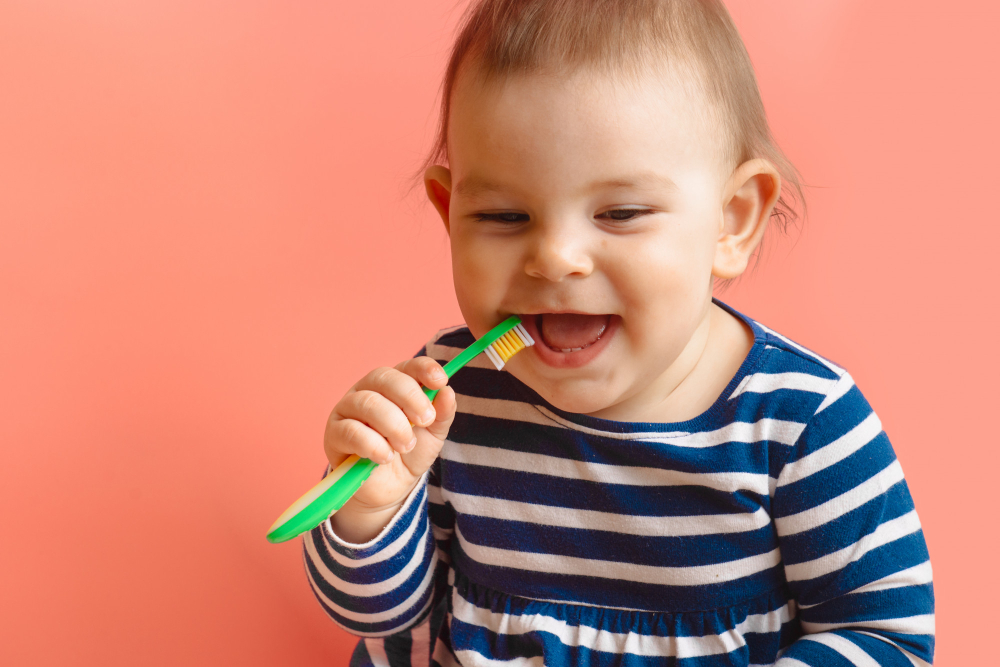
If you suspect that your child has pacifier teeth, make sure to visit your dentist. You can also be advised to consult the pediatric orthodontist, and then you will see what could be the best possible solution for the problem.
And will pacifier teeth correct themselves? There is a possibility of self-correction of teeth caused by a pacifier but only if this issue is detected before your child turns two. This means that this problem has to be addressed on time and at the same time the child should stop using a pacifier.
But, after the age of four, permanent teeth will start to replace the baby’s teeth, and self-correction would not be possible. Then your child’s orthodontist has to decide on the best solution for correcting this dental issue.
Palatal Expanders
A palatal expander is an oral device used to widen the upper jaw. Therefore the natural position of the jaw and teeth is regained. Palatal expanders can also correct the alignment of the mouth’s roof. How long will someone use a palatal expander depends on the state of the teeth caused by pacifiers. It can last from a few months to even a few years.
Braces
Braces are used to correct several types of f malocclusion that are made by pacifiers. This oral device can be very useful for your children in many ways, from making some jaw adjustments to correcting crooked teeth and solving problems caused by bite malocclusion.
Surgery
In some exceptional situations, surgery might also be suggested as a solution for pacifier teeth damage. Surgery is performed in cases when one or more teeth have to be removed and this means that pacifier teeth should be considered a very serious problem.
Thumb Sucking Vs Pacifier: What is Worse for the Teeth?
Thumb sucking can be as problematic for your child’s teeth as using a pacifier. It can cause the same issues with your child’s teeth especially if it continues beyond the age of four.
But, for the parents, the habit of thumb-sucking can be harder to break so it means it will probably last longer. And, the possibility of this habit reverting is higher than using a pacifier again.
When Should Your Child Stop Using It?
The use of a pacifier should stop latest by the age of 4. After that, the risk of developing pacifier teeth will be significantly increased.
You should gradually start to discourage your children from using it just after they turn 12 months. However, the decision depends on you as a parent because you will know when is the best time to start weaning your child from the pacifier. This way your children will always have beautiful smiles and they will not have problems with overjet teeth, open bites, overbites or buck teeth.
If you notice changes in your child’s teeth or bite due to pacifier use, early professional guidance can make all the difference. Visit MGA Dental clinic for expert children’s dentistry care and personalised treatment to help your child’s smile develop healthily.



